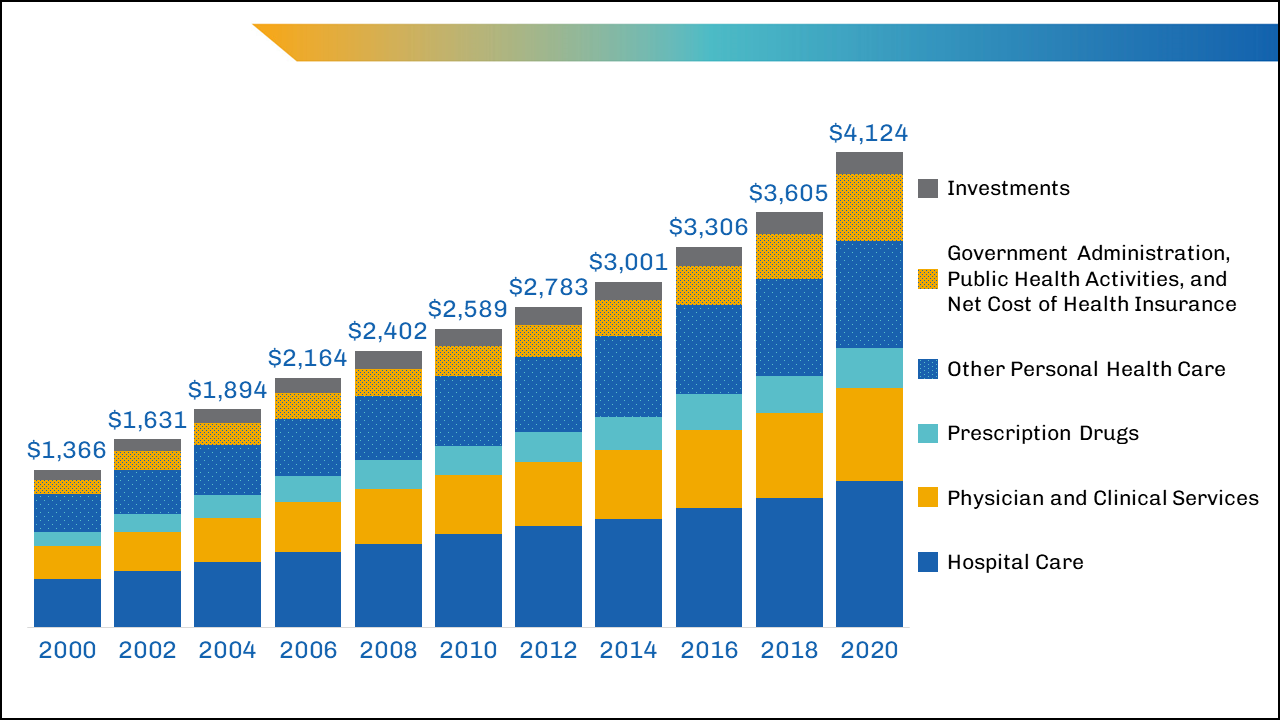Healthcare RCM: Optimize Revenue Cycle Administration for Better Outcomes
Healthcare RCM: Optimize Revenue Cycle Administration for Better Outcomes
Blog Article
A Comprehensive Overview on Just How Health Care RCM Works to Improve Invoicing and Collections
Browsing the complexities of medical care income cycle management (RCM) is critical for companies aiming to improve their invoicing and collections procedures. The guide unboxes the ins and outs of RCM, from individual enrollment to accounts receivable administration, supplying understandings into maximizing each action.
Recognizing Earnings Cycle Monitoring
RCM is an essential administrative feature that encompasses the whole monetary process of person care, from the initial consultation setting to the final repayment of the balance. It is an intricate procedure made to determine, accumulate, and manage the profits from the services given to individuals.
The RCM procedure starts when an individual timetables an appointment and prolongs through the person's care trip, consisting of payment and collections. A key goal is to minimize the time in between obtaining and providing a service settlement, therefore enhancing the company's economic health. RCM involves various functions such as patient registration, insurance policy verification, cost capture, coding, declares entry, settlement posting, and managing appeals and denials.
Secret Elements of RCM
In the realm of Earnings Cycle Management (RCM), comprehending its vital parts is fundamental to achieving economic efficiency within health care companies. RCM is a comprehensive procedure that incorporates various phases, each important to guaranteeing efficient invoicing and collections. The primary components include client registration, insurance policy confirmation, cost capture, coding, case entry, payment posting, and balance due administration.


As soon as coded, claims are submitted to payers, where accuracy is vital to avoid beings rejected or delays - Healthcare RCM. Settlement publishing includes tape-recording the obtained settlements, which enables the reconciliation of accounts. Finally, receivables monitoring concentrates on monitoring and resolving overdue cases, making certain timely follow-up and resolution
Each element of RCM is interconnected, and inefficiencies in any component can interrupt the entire cycle. Consequently, grasping these aspects is crucial for medical care service providers to maximize income and boost their financial health.
Methods for Effective Invoicing

Systematizing billing procedures across the organization is an additional vital technique. Establishing clear guidelines for documentation, coding, and submission assists preserve consistency and conformity with regulative requirements. Educating staff routinely on these procedures guarantees everybody is current with the most up to date adjustments in invoicing codes and payer policies.
Precise fee capture is vital in protecting against profits leak. Carrying out normal audits and surveillance systems enables the identification and correction of discrepancies prior to they influence profits. In addition, maintaining open lines of interaction with payers helps to quickly resolve any disagreements or misconceptions that might develop.

Finally, appealing individuals early in the payment process by giving clear estimates and educational products about their monetary responsibilities can dramatically minimize complication and boost settlement timeliness. These strategies jointly add to a much more financially healthy and balanced and effective invoicing system.
Enhancing Collections Procedures
A robust collections process is vital for keeping monetary security article source within health care organizations. Offered the complexities of clinical billing and the selection of payer demands, boosting the collections process involves carrying out critical steps that guarantee accurate and timely repayment of solutions rendered. Central to this is using technology to automate and simplify procedures, reducing hand-operated mistakes and improving performance. Automation tools can assist in tracking case statuses, sending timely tips to people, and handling denials better.
Clear and clear individual interactions are critical. Giving comprehensive explanations of costs and using flexible payment plans can boost client satisfaction and punctual repayments.
Routine audits of the collections procedure must be conducted to determine areas for renovation and make sure conformity with guidelines. By examining data, medical care organizations can determine patterns, anticipate prospective issues, and adapt techniques appropriately (Healthcare RCM). Inevitably, a well-enhanced collections process not only supports economic health however additionally adds to an extra seamless experience for clients and team alike
Optimizing Revenue Streams
Structure upon the foundation of a solid collections procedure, healthcare companies can further boost their economic stability by purposefully maximizing income streams. This entails a multi-faceted method, beginning with a thorough analysis of existing profits sources to determine inadequacies and areas for growth. Using advanced data analytics tools allows companies to gain insights into Homepage payer mix, client demographics, and solution application patterns, enabling data-driven decisions that enhance earnings capture.
Carrying out automated payment systems can significantly decrease errors and accelerate cases processing, guaranteeing that income is collected a lot more successfully. Moreover, enhancing payer agreements through regular negotiations can boost repayment rates and terms, directly affecting the bottom line. Diversifying service offerings, such as including telehealth or health care, can likewise draw in a wider individual base, therefore enhancing income potential.
An additional vital element is improving client involvement and satisfaction, as satisfied people are a lot more likely to abide by treatment plans and make prompt repayments. Offering adaptable repayment options and clear payment techniques can enhance collections and foster client loyalty. Healthcare RCM. By taking on these methods, health care organizations can develop a much more resilient financial framework, making sure sustained development and security in an ever-changing market landscape
Verdict
In final thought, healthcare Earnings Cycle Administration (RCM) plays a critical function in maximizing invoicing and collections processes by incorporating essential parts such as client registration, insurance policy confirmation, charge capture, coding, declares entry, and accounts receivable administration. By using advanced modern technology, standardizing procedures, and cultivating client engagement, medical care carriers can considerably lower claim rejections, speed up repayment cycles, and boost cash circulation. This extensive strategy to RCM ultimately results in enhanced economic performance and sustainability for medical care organizations.
The RCM process begins when a person routines a consultation and prolongs through the person's treatment trip, including billing and collections.One more crucial part is enhancing client interaction and satisfaction, as completely satisfied people are more likely to adhere to treatment strategies and make prompt repayments. Using adaptable payment options and transparent billing practices can improve collections and foster individual commitment.In final thought, medical care Profits Cycle Monitoring (RCM) plays an essential role in enhancing invoicing and collections procedures by incorporating crucial parts such as person registration, insurance policy confirmation, fee capture, coding, asserts entry, and accounts receivable management. By employing advanced innovation, standardizing procedures, and promoting patient engagement, healthcare providers can significantly reduce case rejections, increase my explanation settlement cycles, and improve money circulation.
Report this page